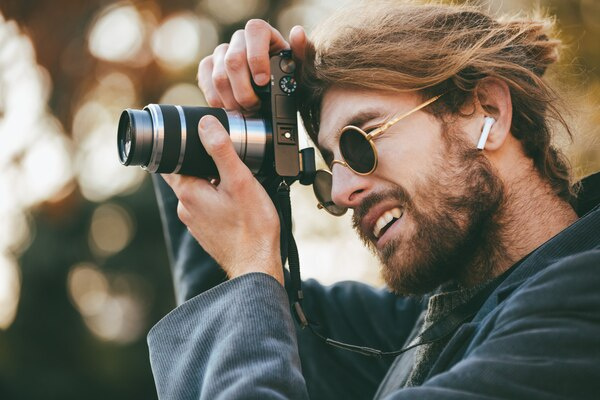Trends in Modern Photography: Innovations and Inspirations
In recent years, modern photography has witnessed a series of innovations and shifts that have significantly influenced how images are created, perceived, and shared. This era of photography is characterized by advancements in technology, a dynamic shift in creative approaches, and the emergence of new platforms for showcasing work. These elements combined have redefined what it means to be a photographer today, opening up new realms of possibility and inspiration.

One of the most significant technological innovations impacting photography is the advent of artificial intelligence (AI). AI-powered tools now enhance everything from image editing to subject recognition, allowing photographers to streamline their workflow and push creative boundaries. Programs such as Adobe's AI-driven Photoshop have made intricate image manipulation accessible to both amateurs and professionals, challenging traditional norms around photo realism and manipulation.
The rise of smartphone photography is another trend that cannot be overlooked. With major improvements in camera quality and editing features, smartphones have democratized photography. This has led to a surge in the number of amateur photographers who can produce breathtaking images and access numerous digital tools at very little cost. The ubiquity and convenience of smartphones have not only increased the volume of images being created but have also had a profound impact on how photographers consider and engage with their environments.
Moreover, social media platforms such as Instagram and Pinterest have emerged as powerful channels for photographers to share their work and gain exposure. These platforms have created communities that thrive on visual storytelling, allowing photographers to draw inspiration from an international audience. However, the influence of social media has also brought about challenges, such as the pressure to conform to certain aesthetics or trends in the pursuit of likes and shares. This has sparked discussions about authenticity and the balance between personal expression and audience engagement.
Another exciting trend in modern photography is the renewed interest in traditional techniques. Film photography, for example, has experienced a resurgence among new generations eager to explore the tactile and often unpredictable nature of analog processes. This interest in returning to the roots of photography is coupled with a desire for slow-paced, deliberate creative expression in contrast to the immediacy of digital photography. As a result, workshops in darkroom techniques and alternative processes are gaining popularity, allowing photographers to incorporate classic elements into contemporary practice.
Furthermore, the trend towards documentary and social issue photography is growing stronger. With an increasing awareness of global issues, photographers are using their art to raise awareness and provoke change. The ability to capture powerful images that tell stories of social, political, and environmental significance has never been more impactful. Photographers are leveraging platforms to amplify voices and stories that might otherwise go unnoticed, solidifying photography's role as a tool for advocacy and change.
In conclusion, modern photography is an ever-evolving field shaped by a blend of technological advancements, creative experimentation, and social influences. As photographers continue to explore new tools and platforms, they perpetuate a necessary conversation about the direction and impact of photography. Whether through the lens of a smartphone or the complexities of a film camera, photography remains a powerful means of expression and communication, continually inspiring those who dare to innovate.